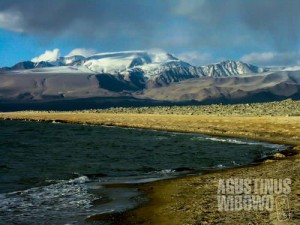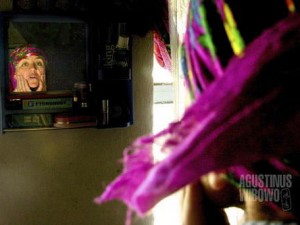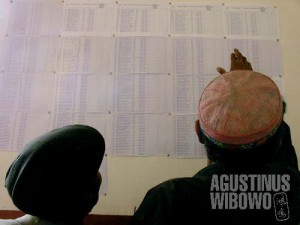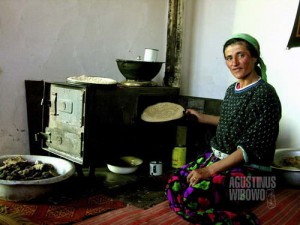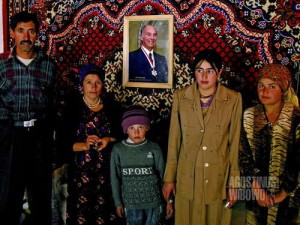Kara Kul – Get Me Outta Here!!!
It;s beautiful. It’s surreal. But I wanna leave! I really regretted to refuse yesterday’s offer to take the truck lift to Kyrgyzstan. My Tajik visa is going to expire tomorrow (November 4) and I just found on Fridays (like today), transport is extremely difficult. The day is very cold and windy. I have to stand next to the main road, waiting for any vehicles. The first truck passes at 12 and it was full of passengers. The next two hours there was no vehicle at all passing the highway. Khurshid takes me to local stalovaya (canteen) and asks the girl to give me the best food. Khurshid promises to treat me, ‘a poor spion (spy) without money who has to travel on trucks’. I asked how much. The girl said, “Beker! Beker!” I jumped as I was surprised. This happened to be a fatal language misunderstanding. In Tajik Persian, the language which I understand, it means ‘no penis’. I explained to the girl that I had, but she only speaks Kyrgyz, and doesn’t understand my [read more]

